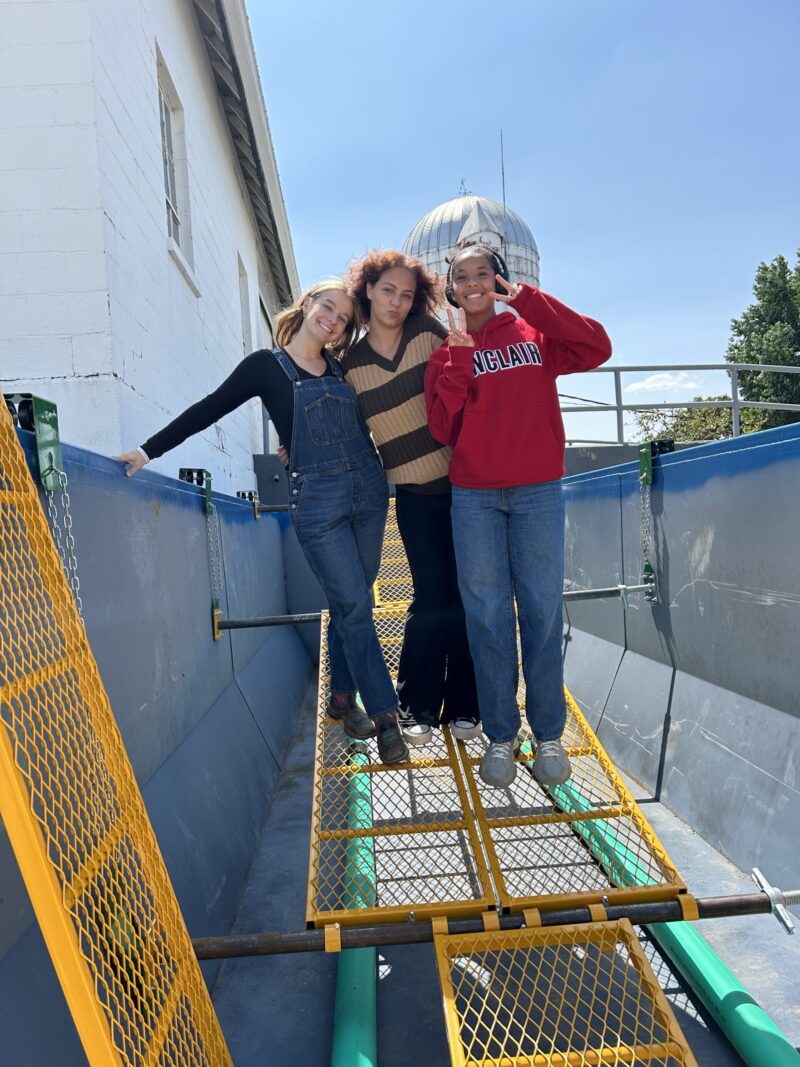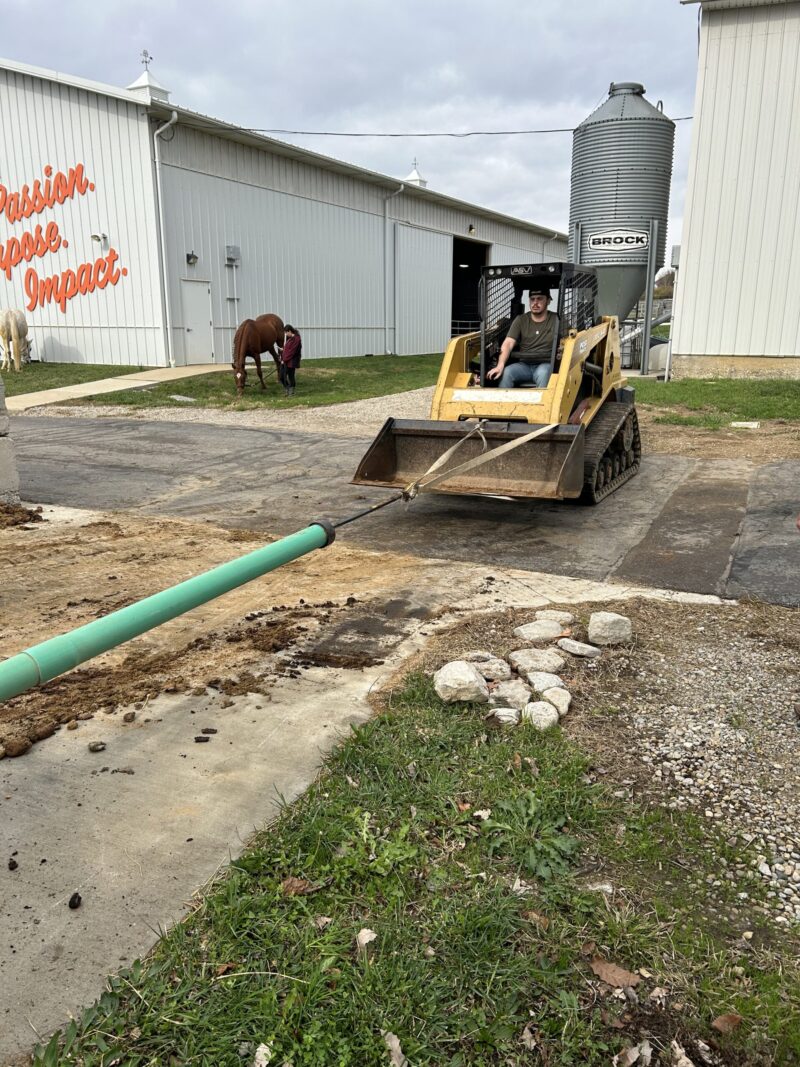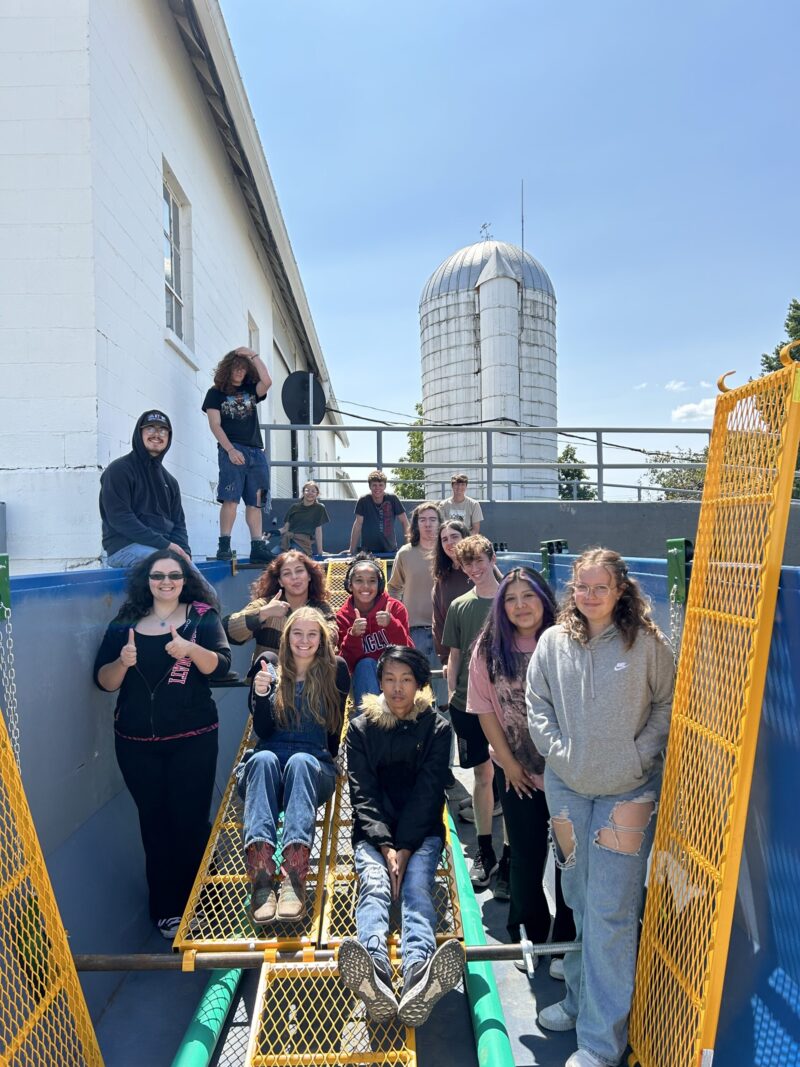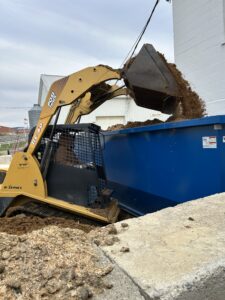 “It starts with a 30-yard dumpster of horse manure. But thanks to the students at Butler Tech, it doesn’t end there. In just eight weeks, it transforms into nutrient-rich compost—ready to fuel the next generation of growth.”
“It starts with a 30-yard dumpster of horse manure. But thanks to the students at Butler Tech, it doesn’t end there. In just eight weeks, it transforms into nutrient-rich compost—ready to fuel the next generation of growth.”
When most people think about waste, they think about something to be thrown away. But in Butler Tech’s Green Engineering program, waste is seen as an opportunity—a resource waiting to be reimagined. It’s a philosophy that’s transforming not just the environment but also the students who work in it.
At the heart of this effort is a project with a surprising star ingredient: horse manure. What might sound unpleasant on the surface is actually a groundbreaking project in sustainability, and it’s giving students the chance to solve real-world environmental problems right at Butler Tech’s Natural Science Center.
“We’ve turned a big, giant pile of waste—which was a problem—into something usable and even sellable,” said Sara Morris, Green Engineering instructor at Butler Tech. Before the project, horse manure from the campus’s Equine Science program was simply discarded, requiring the school to pay to have it hauled away. But thanks to the Green Engineering students and a powerful new tool called an in-vessel composting system, that waste is now being transformed into usable compost that can enrich soil and support future crop production.
The process is surprisingly simple but highly effective. Students load horse manure into a 30-yard composting dumpster, cover it, and let nature’s biological processes go to work. Over the course of about seven to eight weeks, the materials decompose into nutrient-rich compost. Green Engineering students monitor the process, learning how to balance moisture, temperature, and oxygen levels to create the ideal environment for composting.
The first batch wasn’t perfect, admitted Morris, but it was usable—a tangible result of weeks of learning, experimenting, and problem-solving. Now, that compost is being returned to the land it came from, fertilizing pastures and providing essential nutrients for campus crops.
The composting project is about much more than horse manure. It’s a lesson in turning problems into profits and waste into wealth. Students aren’t just learning about environmental science—they’re actively practicing it. They’re applying concepts of sustainability, engineering, biology, and business to solve a real challenge on campus.
“A lot of what you see with green engineering and sustainability is doing just that—taking things that were a problem and turning them into a resource that can then be used for something else,” Morris explained.
The Green Engineering students aren’t just spectators in the process. They’re in control, learning to manage each step of the composting process and collaborating to improve it. They’re also discovering how this skill translates directly into green careers. Companies in waste management, renewable energy, and sustainability are actively seeking workers with the experience these students are gaining in the lab.
Local innovator 80 Acres Farms, a pioneer in sustainable vertical farming, has partnered with Butler Tech’s Green Engineering program to provide students with hands-on opportunities to explore the future of agriculture. Known for its groundbreaking approach to farming—producing pesticide-free crops indoors using renewable electricity—80 Acres Farms exemplifies the innovation students aspire to achieve in their own projects.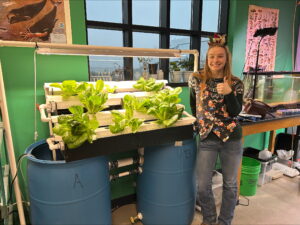
“I’ve been lucky enough to work with the Green Engineering junior and senior classes to create a functioning greenhouse where they can solve real-world greenhouse problems, run experiments, and grow their interest in this exciting field,” said Keegan Gormley of 80 Acres Farms. “What I find most inspiring is how new this industry is—there’s no set blueprint for success, and every challenge offers an opportunity to innovate. Being part of this journey is rewarding because it’s not just about helping one company grow; it’s about advancing the entire field together.”
The collaboration highlights how businesses like 80 Acres Farms are helping the students turn their passions for sustainability into real-world impact, preparing them for careers that merge innovation with environmental stewardship. This project is one of many that reflects the heart of Green Engineering—transforming ideas into action and action into impact.
For example, the students are also growing fresh produce in a new campus hoop house, learning hydroponic farming techniques, and working with drones to map environmental resources. But the composting project has become a powerful symbol of their ability to solve environmental challenges from the ground up—literally.
“When you’re around people who share the same goals and strengths as you and who have a point to make in this world, it definitely impacts you,” said Austin Goedde, a senior in the program, who plans to attend Hocking College in wildlife conservation.
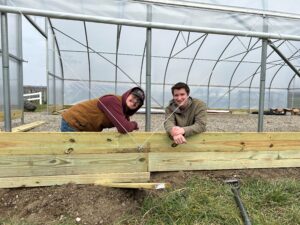 The skills students learn in Butler Tech’s Green Engineering program are more than just academic concepts. They’re the building blocks of modern “green careers” that are growing rapidly in industries like renewable energy, waste management, and sustainable agriculture. Jobs like sustainability manager, environmental consultant, and waste management engineer are on the rise as companies seek to lower their environmental footprint.
The skills students learn in Butler Tech’s Green Engineering program are more than just academic concepts. They’re the building blocks of modern “green careers” that are growing rapidly in industries like renewable energy, waste management, and sustainable agriculture. Jobs like sustainability manager, environmental consultant, and waste management engineer are on the rise as companies seek to lower their environmental footprint.
With hands-on experience in composting, hydroponics, drone mapping, and environmental resource management, Butler Tech students graduate with a host of skills that set them apart in the job market. In the future, Green Engineering students will have the opportunity to earn industry-recognized credentials like Hydroponics Certification, ArcGIS Mapping Certification, and LEED Green Associate Certification, which will give them a competitive edge.
“This program has brought out the absolute best in me. It’s not just about learning—it’s about discovering how I can make a real difference in the world,” shared Goedde.
According to Morris, “Students aren’t just learning concepts—they’re doing the work. They’re applying critical thinking, testing solutions, and seeing the impact they’re making in real-time. That’s powerful learning.”
Students in this program are learning skills that companies want, and communities need. They’re seeing firsthand how they can turn waste into wealth and problems into possibilities.
Students with a passion for innovation and sustainability are invited to explore the possibilities of Butler Tech’s Green Engineering program.
Prospective students can experience the program firsthand by scheduling a small group tour and attending the upcoming
Open House at the Natural Science Center on January 16, 2025, from 4:00 p.m. to 7:00 pm.
Don’t miss the chance to be part of this forward-thinking opportunity—applications for the 2025-2026 school year are open now and must be submitted by January 31, 2025.
